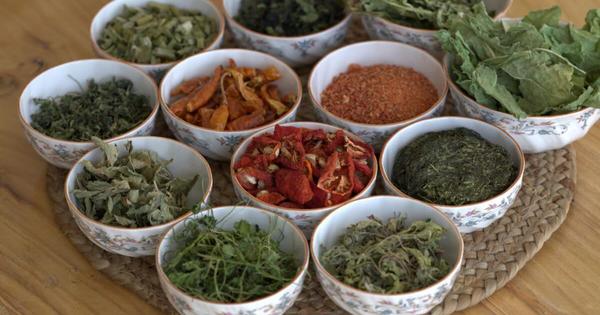Local initiatives are working to sustain traditional knowledge and wild plant species in Ladakh’s changing landscape.
Ladakh’s unique cold desert climate, characterized by low rainfall and harsh winters, has historically supported a variety of wild edible plants. These plants have adapted to survive in the region’s extreme conditions, boasting features such as waxy or hairy leaves that help minimize water loss. Wild edible species like seabuckthorn, wild rhubarb, and high-altitude herbs like caraway and somlata not only provide essential nutrients but also play a vital role in the cultural heritage of the local communities. Bilal Mir, a senior assistant professor at the University of Kashmir, emphasizes the importance of these plants, particularly in an area where traditional farming is limited.
Recent research conducted across twelve villages in Ladakh from 2019 to 2022 has revealed a concerning trend: the historic relationship between local people and these wild plants is diminishing. The study, which involved interviews with 60 residents and was published in the journal Ethnobotany Research and Applications, identified 52 species of wild edible plants. Among these, Himalayan thyme and caperbush were frequently utilized for their culinary and medicinal properties. However, the findings also highlighted that some of these plants are facing significant threats, including one critically endangered species and several others classified as vulnerable or endangered.
According to Zohra Batool, the lead author of the study, the dominant plant families among those identified were Brassicaceae, Polygonaceae, and Asteraceae. The decline of traditional knowledge regarding these plants, which has been passed down orally through generations, poses a significant risk. Factors such as unscientific exploitation, overgrazing, natural calamities, and urban development are exacerbating the situation. Mir notes that as roads are built and tourism increases, the delicate alpine ecosystems are being disrupted.
Climate change further complicates matters by altering snowfall patterns and impacting the habitats necessary for high-altitude flora. Livestock grazing has also hindered the regeneration of key wild greens like Himalayan nettle. As younger generations move away from traditional practices, the risk of neglecting and overusing these plants increases. Additionally, the commercial exploitation of certain species adds pressure to already fragile ecosystems.
To address these challenges, conservation efforts must combine community engagement, sustainable practices, and policy support. Mir advocates for the designation of critical habitats as community reserves, where development and grazing are limited. Furthermore, initiatives like seed banks and herbal gardens can help safeguard the genetic diversity of these plants.
One notable effort in sustainable cultivation comes from Deskit Angmo, a former environmental lawyer who established Makoii Apothecary in 2022. Her work emphasizes the importance of connecting traditional knowledge with modern practices, creating herbal formulations that respect both ecology and cultural heritage. Angmo highlights that many wild plants possess unique healing properties due to the extreme conditions in which they grow. To preserve these qualities, she adheres to strict foraging ethics, focusing on small-batch production that aligns with seasonal rhythms.
Ultimately, the path forward requires a concerted effort to protect Ladakh’s wild edible plants and the rich cultural knowledge associated with them. Engaging local communities, particularly women and traditional healers, in decision-making processes can ensure that sustainable harvesting practices are maintained for future generations. The need to balance conservation with economic opportunities remains critical in fostering a resilient ecosystem that honors both nature and tradition.








